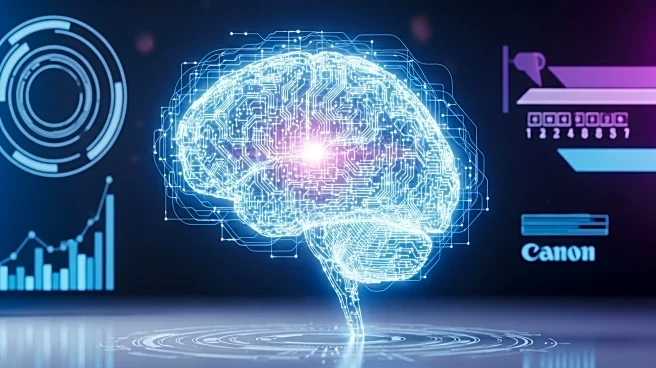What's Happening?
SK Telecom has announced the creation of an independent AI company-in-company (CIC) unit, consolidating its AI assets to accelerate innovation. The initiative, unveiled by CEO Yoo Young-sang, aims to enhance both consumer-facing and enterprise AI services. The new unit will integrate various AI operations, including personal assistants, enterprise services, and data centers. SK Telecom plans to invest KRW 5 trillion ($3.6 billion) over five years, targeting annual AI revenues of the same amount by 2030. The company is also embedding AI into its internal systems, aiming for a comprehensive AI transformation.
Why It's Important?
This strategic move positions SK Telecom as a major player in the AI industry, potentially influencing the global AI ecosystem. The substantial investment reflects the company's commitment to leveraging AI for business innovation and consumer services. By consolidating its AI operations, SK Telecom aims to streamline processes and enhance efficiency, potentially leading to significant advancements in AI technology. The initiative may also impact the competitive landscape, encouraging other telecom companies to invest in AI development.
What's Next?
SK Telecom's AI unit is expected to drive innovation in AI services and platforms, with organizational restructuring anticipated by the end of October. The company plans to expand its collaboration with OpenAI, exploring B2B services and group-wide initiatives. As SK Telecom integrates AI into its infrastructure, stakeholders will likely monitor its progress and impact on the telecom industry. The success of this initiative could lead to further investments and partnerships, shaping the future of AI development.
Beyond the Headlines
The launch of SK Telecom's AI unit highlights the growing importance of AI in the telecom sector. As companies increasingly rely on AI for innovation, ethical considerations regarding data privacy and security may arise. This development could prompt discussions on establishing industry standards for AI usage, influencing regulatory frameworks and public policy.









